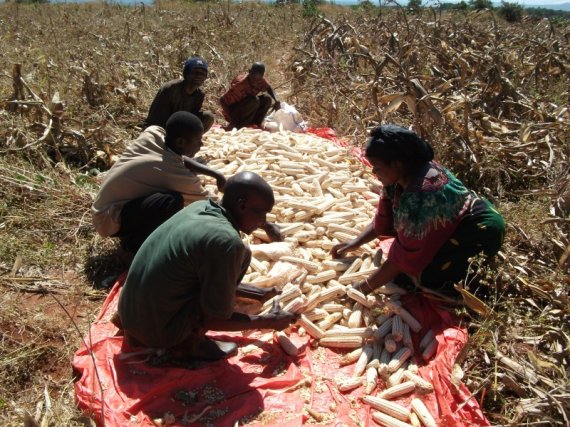Manda, who did his PhD for the chair group Agricultural Economics and Rural Policy Group, visited 810 households in the east of Zambia to find if the children under 5 years old were malnourished. This data was compared, among other things, to age and nutrition of the children, the age and education of the parents, the sanitary facilities and the type of corn that they grew. Earlier research had shown that half of the children in Zambia were immature resulting from malnutrition.
From Manda’s analysis it was found that in households that grew the traditional local corn, at least 62 percent of the children under five years old was malnourished. In households that used improved corn breeds, 51 percent of the children was malnourished and immature. He could also determine that a switch of local to the improved breeds would lead to a reduction in malnutrition of the children. The improved corn caused higher yields, more income and more food security for the farmer families, Manda concluded in February in the magazine Food Security.
He also showed that better education, especially for the women, lead to less malnutrition. The chance for malnutrition of the young children was reduced by 16 percent with every year of schooling of the woman in the household. Education of both parents reduces the change of malnutrition with 75 percent. Manda thinks that especially the older women in the household can transfer knowledge to young mothers that benefits the health of the young children. Also good sanitation facilities reduce the chance of malnutrition, because they reduce infectious disease and diarrhoea in children.
To reduce the number of malnourished children in Zambia, policymakers not only need to invest in education for women, Manda concludes, but also in the knowledge transfer of agricultural technology, such as good corn seeds.

